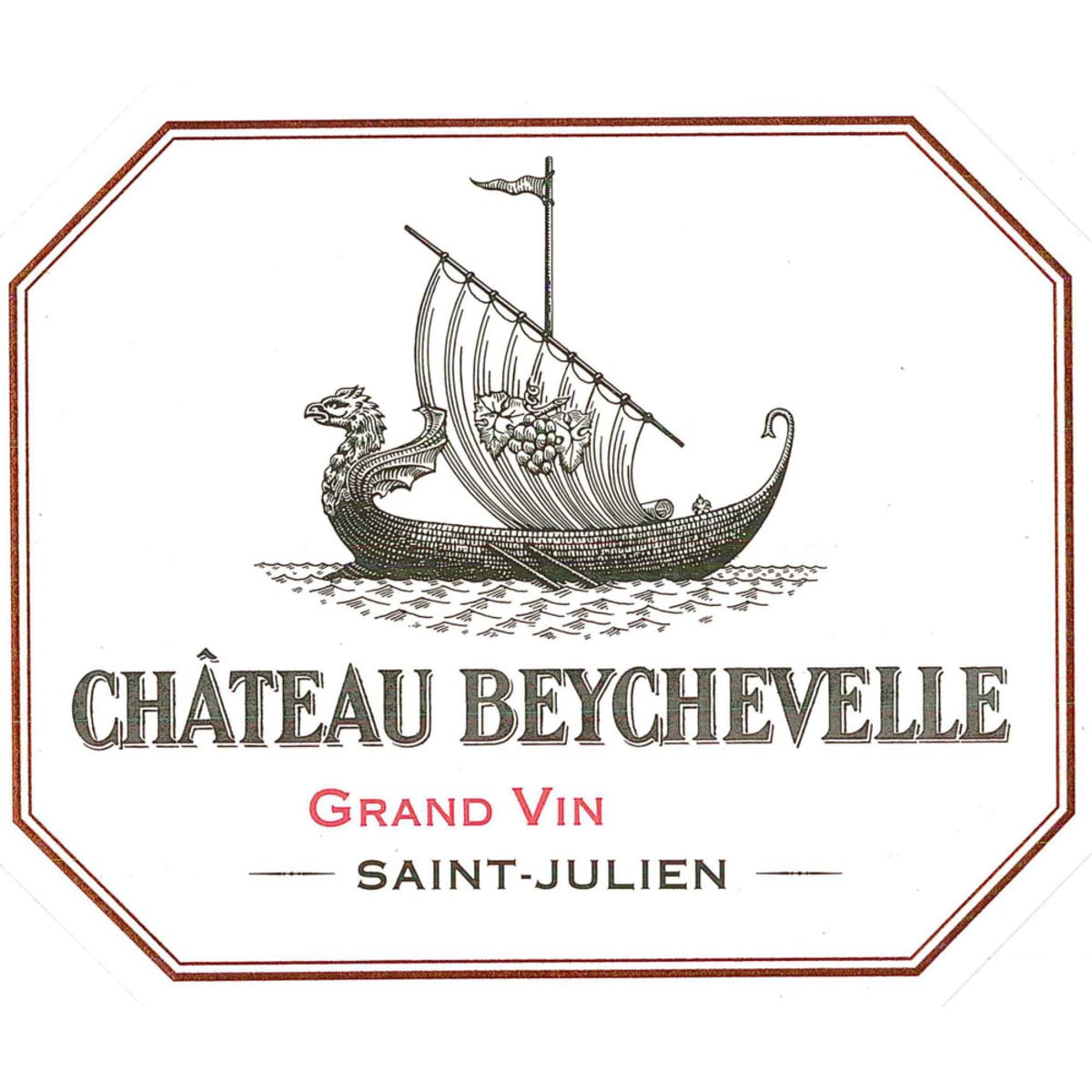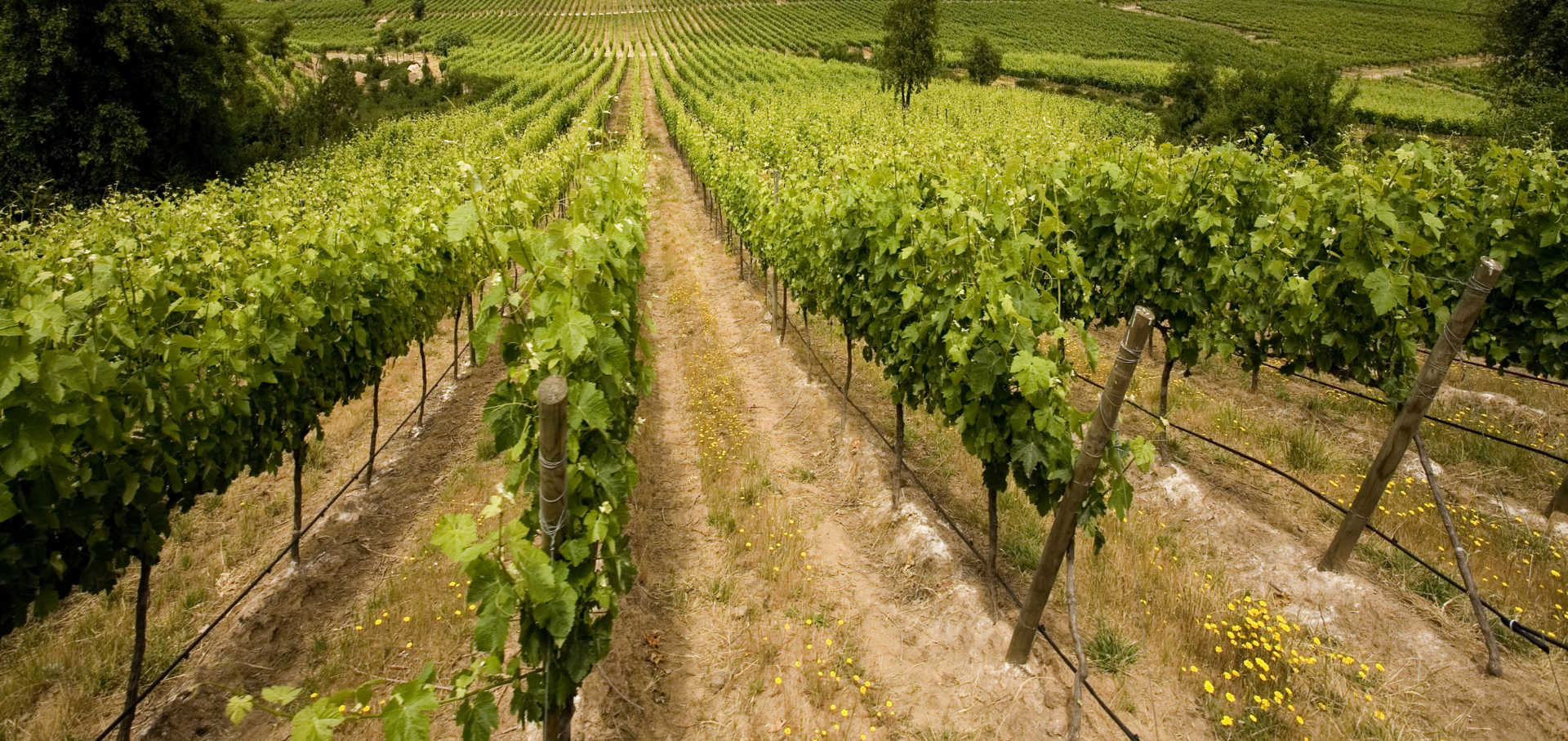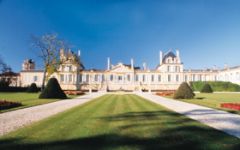Chateau Beychevelle 2012
-
Wine
Enthusiast -
Robert
Parker -
James
Suckling -
Wine
Spectator - Decanter


Product Details
Your Rating
Somm Note
Winemaker Notes
Professional Ratings
-
Wine Enthusiast
This is a smooth, rich wine that's intensely concentrated and packed with great black-currant fruits. The wine has weight and a sense of structure to support the great fruitiness.
Barrel Sample: 93-95 Points -
Robert Parker's Wine Advocate
The grand vin, the 2012 Beychevelle, is one of the stars of St.-Julien. Opaque purple, with beautiful crème de cassis notes, the wine has floral underpinnings, sweet tannin and a nice layered, multi-dimensional mouthfeel. This is elegant and powerful, rich and intense, but light on its feet. This is a great Beychevelle and certainly seems to exceed the vintage’s character and expectations. Give it 4-6 years of bottle age and drink it over the following 25-30 years.
Rating: 92+ -
James Suckling
This shows an outstanding density of fruit with currant, blueberry and raspberry character. Full-bodied, compressed and tight. Fine tannins. Better in 2017.
-
Wine Spectator
Very solid, with a bramble-lined core of blackberry, blueberry and raspberry fruit, backed by anise and singed wood spice notes. A bolt of graphite pins the finish down. Best from 2016 through 2024.
-
Decanter
2012 was a relatively cool vintage but this remains lovely and open on the nose. There's a good density to the black fruit, mixed through with charcoal and cedar notes. Still tight on the finish but a good quality wine, with appealingly supple tannins through the mid-palate and it should be ready to drink before both the 2011 and the 2010 vintages. The gravel soils of Château Beychevelle, alongside the thermal effect of the river, often give it one week difference of ripening compared to neighbouring estates further to the west of the appellation, and this really helped in 2012. This was the first year with technical director Romain Ducolomb, who came from Château Clinet, although he is originally from Burgundy and has worked both in Burgundy and Napa along the way. 4% Cabernet Franc makes up the blend.
Other Vintages
2022- Vinous
-
Jeb
Dunnuck - Decanter
-
James
Suckling -
Robert
Parker
-
Robert
Parker - Decanter
- Vinous
-
Jeb
Dunnuck -
James
Suckling
-
Jeb
Dunnuck - Decanter
-
Wine
Enthusiast -
James
Suckling -
Wine
Spectator -
Robert
Parker
-
Wine
Enthusiast -
James
Suckling - Vinous
-
Jeb
Dunnuck - Decanter
-
Robert
Parker -
Wine
Spectator
-
Jeb
Dunnuck -
Wine
Spectator -
Wine
Enthusiast -
Robert
Parker -
James
Suckling - Decanter
-
Wine
Enthusiast -
Jeb
Dunnuck -
Robert
Parker - Decanter
-
James
Suckling -
Wine
Spectator
-
Jeb
Dunnuck -
Robert
Parker - Decanter
-
Wine
Enthusiast -
James
Suckling -
Connoisseurs'
Guide -
Wine
Spectator
-
Wine
Enthusiast -
Jeb
Dunnuck -
James
Suckling -
Tasting
Panel -
Wine
Spectator - Decanter
-
Robert
Parker
-
James
Suckling -
Wine
Enthusiast -
Jeb
Dunnuck -
Wine
Spectator -
Robert
Parker -
Wilfred
Wong - Decanter
-
Wine
Enthusiast -
Wine
Spectator -
Robert
Parker
- Decanter
-
James
Suckling -
Wine
Enthusiast -
Robert
Parker -
Wine
Spectator
-
James
Suckling -
Robert
Parker -
Wine
Enthusiast - Decanter
-
Wine
Spectator
-
James
Suckling -
Wine
Enthusiast -
Wine
Spectator
-
Robert
Parker -
Wine
Enthusiast
-
Wine
Enthusiast -
Robert
Parker -
Wine &
Spirits
-
Wine
Spectator
-
Wine
Enthusiast -
Robert
Parker -
James
Suckling
-
Wine
Spectator
-
Robert
Parker
-
Wine
Spectator
-
Wine
Spectator -
Robert
Parker

One of the world’s most classic and popular styles of red wine, Bordeaux-inspired blends have spread from their homeland in France to nearly every corner of the New World. Typically based on either Cabernet Sauvignon or Merlot and supported by Cabernet Franc, Malbec and Petit Verdot, the best of these are densely hued, fragrant, full of fruit and boast a structure that begs for cellar time. Somm Secret—Blends from Bordeaux are generally earthier compared to those from the New World, which tend to be fruit-dominant.

An icon of balance and tradition, St. Julien boasts the highest proportion of classed growths in the Médoc. What it lacks in any first growths, it makes up in the rest: five amazing second growth chateaux, two superb third growths and four well-reputed fourth growths. While the actual class rankings set in 1855 (first, second, and so on the fifth) today do not necessarily indicate a score of quality, the classification system is important to understand in the context of Bordeaux history. Today rivalry among the classed chateaux only serves to elevate the appellation overall.
One of its best historically, the estate of Leoville, was the largest in the Médoc in the 18th century, before it was divided into the three second growths known today as Chateau Léoville-Las-Cases, Léoville-Poyferré and Léoville-Barton. Located in the north section, these are stone’s throw from Chateau Latour in Pauillac and share much in common with that well-esteemed estate.
The relatively homogeneous gravelly and rocky top soil on top of clay-limestone subsoil is broken only by a narrow strip of bank on either side of the “jalle,” or stream, that bisects the zone and flows into the Gironde.
St. Julien wines are for those wanting subtlety, balance and consistency in their Bordeaux. Rewarding and persistent, the best among these Bordeaux Blends are full of blueberry, blackberry, cassis, plum, tobacco and licorice. They are intense and complex and finish with fine, velvety tannins.


